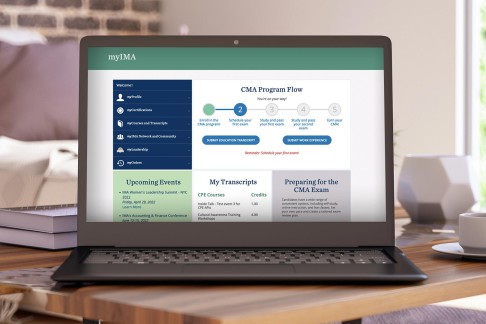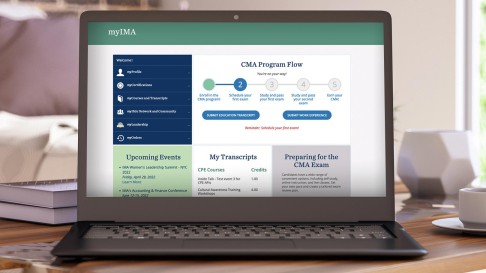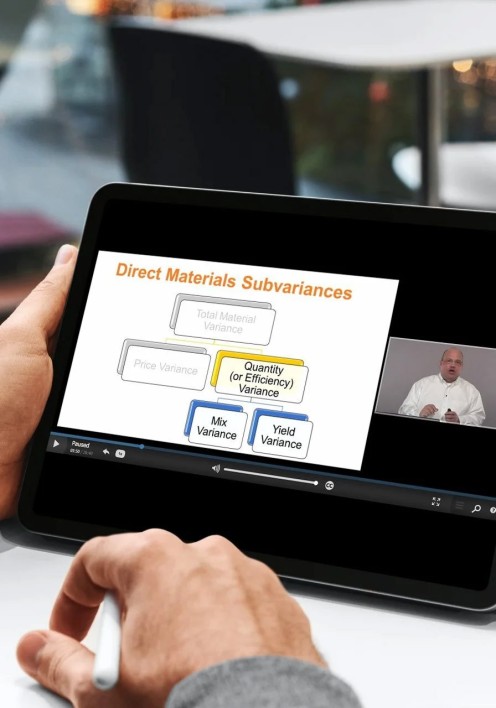CIA part 3 exam preparation course.
CIA is the only globally recognized internal audit certification!
Start October, 2024
The CIA exam consists of three parts: Part 1 "Essentials of Internal Auditing", Part 2 "Practice of Internal Auditing" and Part 3 "Business Knowledge for Internal Auditing". The CIA qualification is awarded to candidates who successfully pass all 3 challenging exams.
CIA Part 3 includes four sections focusing on basic business knowledge, investments, information security, information technology, and financial management.
Training program provides the following knowledge and practical skills:

The CIA part 3 course syllabus includes the following sections: business acumen (organizational objectives, behavior, and performance; organizational structure and business processes; data analytics) - 35%, information security - 25%, information technolodgy (application and system software, IT infrastructure and IT control frameworks, disaster recovery) - 20%, financial management (financial accounting and finance, managerial accounting) - 20%.
Lesson 1: Basic business knowledge
Strategic planning and key business areas. Common performance indicators. Organizational behavior and various performance management techniques. Traits of an effective manager: leadership, personnel management, commitment to the organization and having entrepreneurial skills.
Lesson 2: Organizational structure and business processes
The impact of risk management and control organization in different organizational structures. Risk management and control organization issues of common business processes. Methods of project management. Forms and elements of contracts. Data analysis: types, types of controls, value of analysis, data analysis process, application of data analysis techniques in internal audit.
Lesson 3: Information Security
Types of common physical security controls. Forms of user authentication and authorization controls. The purpose and use of various information security controls. Data privacy laws and their potential impact on data security policies and practices. Emerging technologies and their impact on security. Existing and emerging information security risks, cybersecurity and information security policies.
Lesson 4: Information Technology
Application and system software. Basic database terms. Basic characteristics of system software. Basic IT infrastructure and networking concepts. Operational role of the network administrator, database administrator, and help desk. Application of IT management organization concepts. Disaster recovery: approaches to disaster recovery base planning. Purpose of data and systems backup tools, data and systems recovery procedures.
Lesson 5. Financial Accounting and Finance
Concepts and basic principles of financial accounting. Existing and new concepts of financial accounting. Financial Analysis. Revenue cycle, ongoing asset management activities and accounting, and supply chain management. Capital budgeting, capital structure, basic taxation and transfer pricing.
Lesson 6. Management Accounting
General concepts of management accounting. Definition of cost accounting systems. Known types of costs and their use in decision making.
Lesson 7: Part 3 final lesson.
Repetition of all the topics covered in the previous stages. Practice questions. Test-taking strategies and time management. Preparation for the CIA Part 3 exam.
Ms Qurashvili, PhD, has 17 years of experience delivering various courses at universities and institutes, working in senior positions for pharmaceutical companies, and preparing and submitting financial statements. While working in the public sector, she served as an advisor in the affairs of the Social Security of Youth and Young Families, Department of Youth Affairs of Georgia. As a project manager, Ms Qurashvili has collaborated with organizations such as Save the Children (USA), the Swiss Agency for Development and Cooperation in the South Caucasus (Switzerland), and the Bureau of Population, Refugee, and Migration (USA). Ms Qurashvili is the founder and director of Pharmacy Ltd as well as Lotus Ltd, a micro-manufacturing company. Currently, she also holds the position of an associate professor at ALTE and Ken Walker International Universities and is an invited professor at the University of Georgia. Additionally, she is an author of several scientific publications.

Lessons are conducted ONLINE in real time on the ZOOM platform. Trainees can communicate with the tutor and colleagues and ask clarifying questions during the training. A virtual whiteboard is used to demonstrate calculations, graphs and diagrams during each lesson. A presentation with the main ideas of each topic is shown. Study materials, practical tasks and tests, CIA books are provided. After the lesson all participants receive a video recording of the lesson and an informative and comprehensive notes from the tutor. The training process includes testing on each topic to consolidate the material covered and to practice solving exam tasks. Each student is given access to a personal account of the learning system with the ability to monitor progress.
CIA training in Georgia. Courses, test, exam, qualification, certificate | HOCK

Candidates for CIA certification must complete 3 examination parts. Part 1 of the exam contains 125 multiple-choice questions, Parts 2 and 3 - 100 multiple-choice questions. The time for Part 1 is 2.5 hours, for Parts 2 and 3 is 2 hours. A candidate must answer approximately 75% of the questions correct in order to pass the exam.

To be approved into the CIA program, the candidate must either: hold a Bachelor’s degree or higher, or hold an active Internal Audit Practitioner designation, or possess five years of internal audit experience, or be an active student in your final year of college. To qualify you must provide a written recommendation from their supervisor / employer or Certified Internal Auditor. Candidates must have two years of experience in the field of internal audit or quality Assurance, risk management, audit/assessment/disciplines, compliance, external audit, internal control. Candidates may apply to the certification program and sit for exams prior to obtaining the required work experience. However, candidates will not be certified until unless the experience requirement is met within the program eligibility period.


What is included in the course fee?